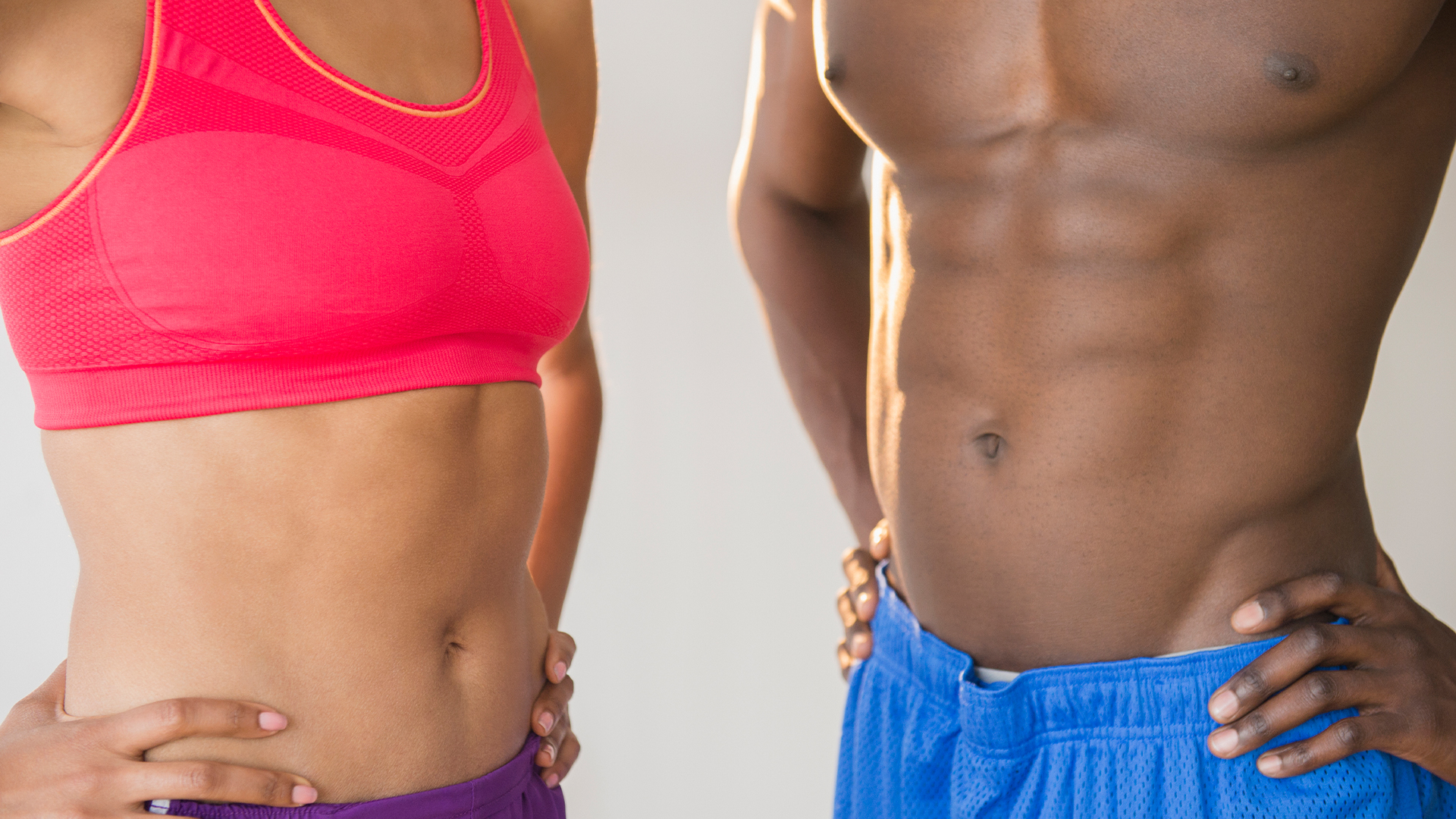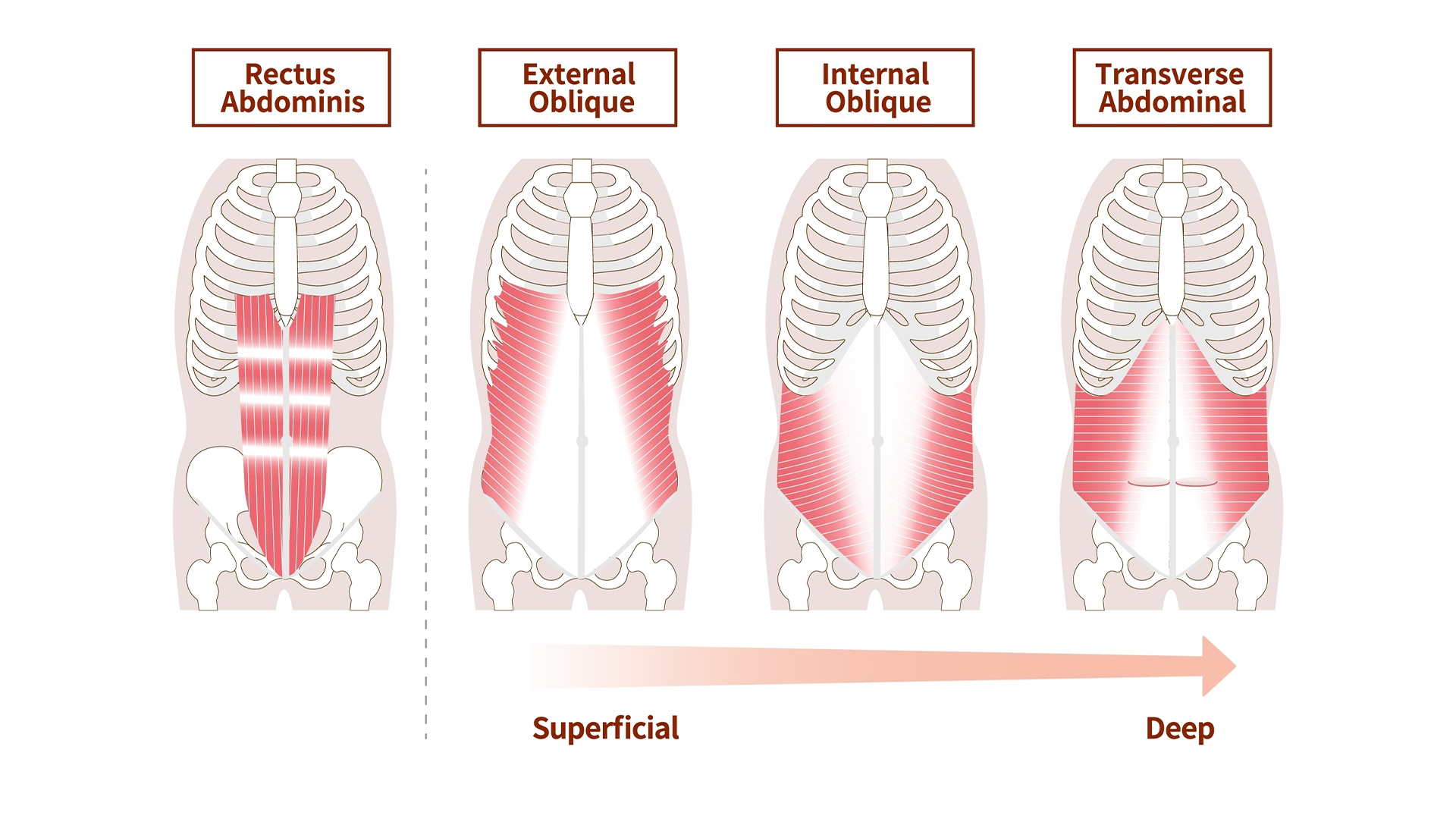
As you struggle through your third set of crunches at the gym, one motivator might be the promise of six-pack abs. But for some people, this may not be physically possible — not because they aren't exercising hard enough, but because their toned core will instead reveal a four pack of abs or, in other cases, an eight pack. So what's behind the variations in washboard abs?
Everyone's abdominal wall is made up of five different muscles that run from the ribs to the pelvis. These muscles help to protect the spine, support balance and improve mobility, research shows. The top layer, known as the rectus abdominis, is the longest muscle of the abdominal wall and is comprised of three fibrous bands that run vertically up the abdomen. Several fibrous tissues known as tendinous intersections run horizontally across the center vertical band, cutting the abdominal wall into sections, which eventually can give way to the appearance of six-pack abs.
"That's going to provide a nice border for that aesthetic to really show the prominence of abs," Andrew Wells, a certified exercise physiologist at Wake Forest University in North Carolina, told Live Science. And consequently, the number of tendinous intersections you have indicates how many abs you show, he added.
Related: Why are humans good long-distance runners?

This number is determined by genetics. Around 60% of the population is born with three tendinous intersections, which means most people would sport six-pack abs if they worked at it, according to multiple studies. Approximately 20% instead have four of these intersections, which make up eight distinctive abs. In rarer cases, a person may have fewer abs: about 15% of people max out at a four-pack and around 2% top out at a two-pack.
But the number of abs you have has nothing to do with how strong your core is, according to Michele Olson, a senior clinical professor in the Department of Sport Science and Physical Education at Huntingdon College in Alabama.
Having an eight pack "doesn't necessarily mean you have superior abs or stronger abs than somebody who was born with three of those tendinous intersections, where there are six sections," she told Live Science. "Some people just have more sections than others."
Scientists are not yet certain if there is any benefit to having an eight-pack versus a six-pack, but Olson's best guess is that a person with more tendinous intersections may have a slightly greater range of motion than someone with fewer.
The best path to sporting well-defined abs is "through exercise and through caloric deficit," or consuming fewer calories than your body needs to maintain itself, which can help minimize the fat right above your abdominal muscles, according to Wells. But scientists and dietitians stress that simply having chiseled abs — whether a four-, six- or eight-pack — is not necessarily an indicator of health if you are starving or overexerting yourself to achieve it. Similarly, it's still possible to have healthy abdominal muscles even if you don't have washboard abs.
"You can have strong abdominal muscles, but if you're more of a typical size and you have a little more of a layer of fat underneath your skin — and then that fat, in turn, sits on top of all those muscles — your muscles may not show as much, but you can still get them strong," Olson said.
This article is for informational purposes only, and is not meant to offer medical advice.
Editor's note: Updated at 9:19 a.m. EST on Nov. 5 to clarify that the rectus abdominis is the longest, not the largest muscle of the abdominal wall.







